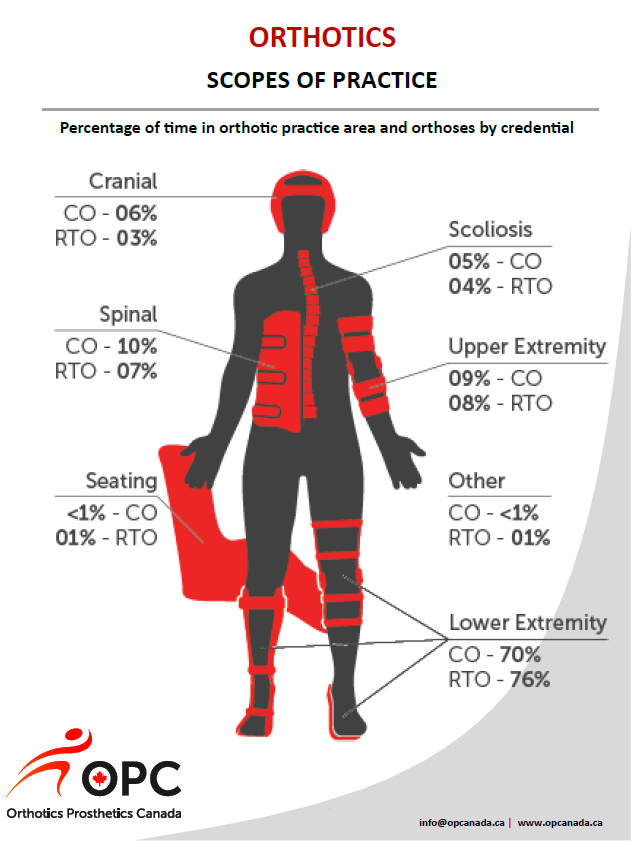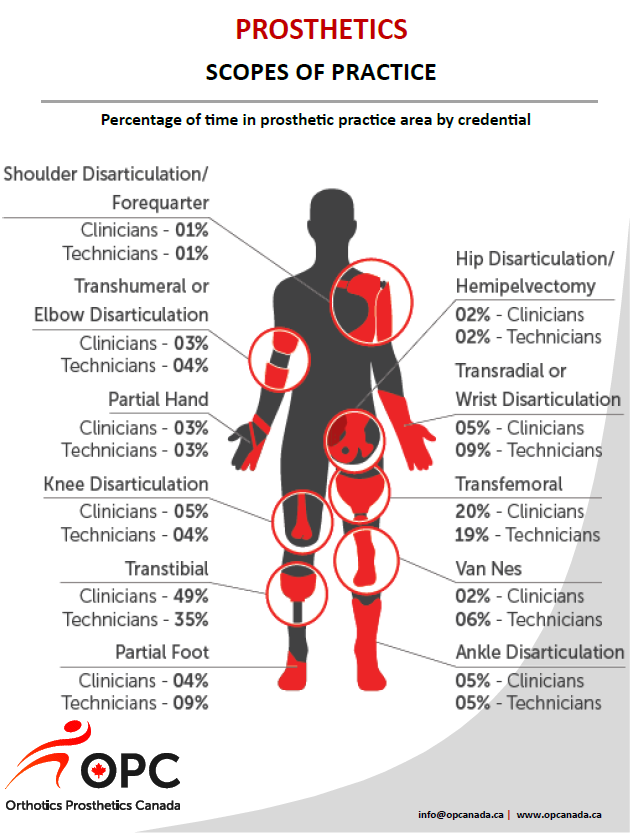Certified Practitioners
A certified practitioner is a health professional who is specifically educated and clinically trained to manage the provision of comprehensive orthotic and prosthetic care, based upon a clinical assessment, to restore physiological function and/or cosmesis. As the practitioner responsible for all patient care, the certified practitioner independently provides or supervises the provision of comprehensive orthotic and/or prosthetic care. This includes patient assessment, formulation of a treatment plan, implementation of the treatment plan, follow-up, and practice management. In addition, the certified prosthetist and/or orthotist is obligated to support and conform to the professional responsibilities which promote and assure the overall welfare of the patient and the integrity of the profession.
Certification is awarded as an attestation of competency for the public, those who require orthotic/prosthetic services, and those in other health professions. The awarding of certification provides the certified practitioner with an appropriate and meaningful recognition of professional competence.
CLASSIFICATION OF CERTIFICATION:
- CP(c) = Certified Prosthetist in Canada
- CO(c) = Certified Orthotist in Canada
- CPO(c) = Certified Prosthetist and Orthotist in Canada


Certification Pathway
Certification of Orthotists and Prosthetists in Canada has been taking place for over 50 years. Certified Orthotists and Prosthetists are unique health professionals who are specifically educated and clinically trained to manage the provision of comprehensive orthotic and prosthetic care, based upon a clinical assessment, to restore physiological function and/or cosmesis. They are knowledgeable specialists providing customized care with a focus on the patient’s overall well-being and improved physical health.
Certification is awarded as an attestation of competency for the public, those who require orthotic/prosthetic services, and those in other health professions. The awarding of certification provides the certified practitioner with an appropriate and meaningful recognition of professional competence.
The following requirements are necessary to become a Certified Orthotist or a Certified Prosthetist in Canada:
- Bachelor Degree (i.e. Science, Kinesiology, or equivalent) is a pre-requisite for entry into one of the two accredited Prosthetic and Orthotic programs in Canada.
- Completion of an accredited, two year, post-graduate Prosthetic and Orthotic Clinical Methods Program*.
- Completion of a 3,450 hour Residency in prosthetics or orthotics under the supervision of a Certified practitioner in the appropriate discipline.
- Successful challenge of the written and practical CBCPO Certification exams.
- Adherence to the Canons of Ethical Conduct.
* There are two accredited prosthetic and orthotic clinical programs in Canada at the British Columbia Institute of Technology in Burnaby, BC and George Brown College in Toronto. See Accredited Programs for more information.
Individuals that are foreign trained can find out more about how to become credentialed in Canada here.